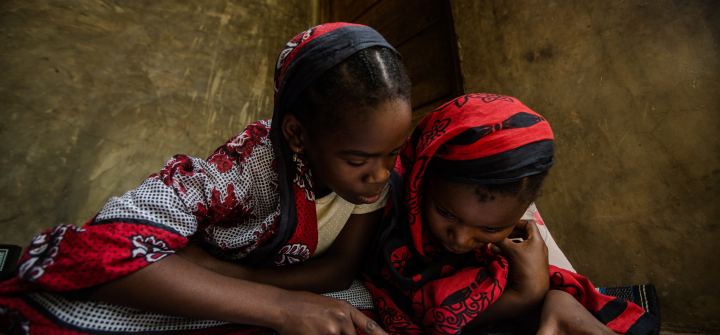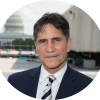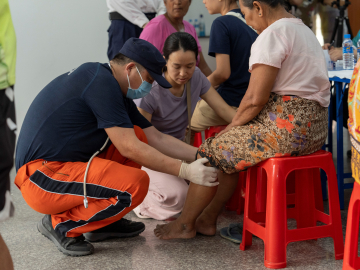What the New State Department Bureau Can Do for Global Health
With federal funding negotiations now underway and the president’s budget due in the coming weeks, global health advocates are making last-minute investment pitches for various programs. For all the tremendous progress and millions of lives saved, global health programming remains fragmented like so many budget line items, missing opportunities for collaboration and efficiencies. Too often, dialogue about health priorities such as infectious diseases, primary health care, pandemic preparedness and stronger health systems happen in different rooms, when in fact they are all intertwined.
To capitalize on its strong assets, the U.S., as a world leader on global health, needs to pursue two primary goals.
- First, given its major historic investments and the substantial progress that has been made, the U.S. needs to continue to lead global efforts to end the HIV, tuberculosis, and malaria epidemics—preventable illnesses that continue to cause the deaths of nearly 2.5 million people each year.
- Second, we should actively look for opportunities to leverage the essential infrastructure created through these disease-specific efforts, combined with new investments, to make progress on pandemic preparedness and strengthened health systems.
The State Department’s new Bureau of Global Health Security and Diplomacy, launched last year, is positioned to play a central role in both goals. The new bureau has been established at a time when global health’s future is being hotly debated around the world. COVID-19 reminded us of the urgent need for stronger health security and health systems that can identify and respond to inevitable new disease threats. Yet four years after the new pandemic was recognized, health security programs remain woefully underfinanced and uncoordinated. Some donor countries other than the U.S. are questioning the focus on ending current pandemics, like HIV, TB, and malaria, in favor of other health priorities.
Today, the world needs leadership that advances impact and synergies rather than silos and false choices.
Ambassador John Nkengasong and his team are in a pivotal position. They lead the new bureau along with the hugely successful U.S. President’s Emergency Plan for AIDS Relief, our largest global health program, and they oversee the U.S. relationship with the Global Fund to Fight AIDS, tuberculosis, and malaria, our most significant multilateral health investment. The bureau holds the U.S. seat on the World Bank’s Pandemic Fund board, and it is charged with coordinating preparedness across the U.S. government.
With COVID-19, we have already seen how the Global Fund, PEPFAR, the President’s Malaria Initiative, and the USAID TB program can be harnessed to respond to new disease threats. For example, during COVID-19, HIV-financed health workers, laboratory systems, surveillance sites, health information systems, procurement and supply chain systems, and community-based organizations played important roles in national responses to the new pandemic. The bureau should be an incubator for innovative, win-win approaches to build on these investments. It should regularly convene multiple stakeholders to investigate how to maximize program synergies dollar for dollar. And it should be a leading voice for new ideas and research for better coordinated health programming.
In particular, the bureau needs to use its seat on the new Pandemic Fund board to insist on better integration of the Global Fund, Gavi, and other high-value programs with the new fund, and to push for greater integration of health security programming globally. The latest draft of the pandemic accord being negotiated in Geneva calls for the creation of yet another new funding mechanism; the bureau can argue instead for financing through existing, highly effective entities that fully involve partner countries, like the Global Fund. To help close the considerable financing gap for global health, the bureau should advance an agenda for mobilizing new investment, urging other donors, the private sector, and low- and middle-income countries to do more to identify resources including and beyond official development assistance.
Arguably, the bureau’s most important task as it pursues synergies in health programming is to demonstrate how progress on HIV, tuberculosis and malaria can be enhanced, not compromised, as these platforms have broader impact. And the bureau must make it a priority to ensure the values that have inspired the AIDS response and are built into PEPFAR and the Global Fund are mainstreamed across global health: a focus on impact, inclusion of multiple stakeholders, civil society engagement, and attention to the most vulnerable.
What we need are synergies and new investment, not counterproductive tradeoffs. We can’t rob AIDS, TB, and malaria programs to finance other aspects of health, as divestment would be a sure recipe for disease resurgence and global insecurity. At the same time, we cannot eliminate these leading infectious diseases without taking into account the urgent need to strengthen and sustain health systems.
By continuing to have a laser-like focus on results, maximizing efficiencies, and working with countries to assume progressively greater leadership, the new bureau has the opportunity to advance our health security, build political support for U.S. global health investments across the political spectrum, and save millions more lives.
Chris Collins is the president and CEO of Friends of the Global Fight.
Join the 50,000+ subscribers in 170+ countries who rely on Global Health NOW summaries and exclusive articles for the latest public health news. Sign up for our free weekday newsletter, and please share the link with friends and colleagues.
Children reading USAID malaria educational materials in Zanzibar, Tanzania. January 28, 2015. Morgana Wingard, USAID via Flickr/Creative Commons license





